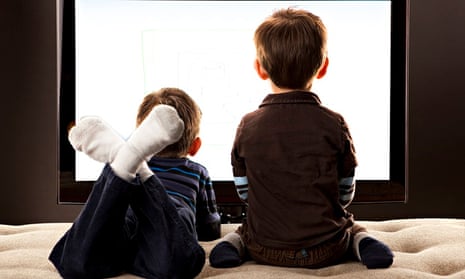The old joke about Microsoft was that it took three goes to get anything right; hence Windows 3.1 was the first to be widely used. For Microsoft, now read Google, and TV software. This year’s Android TV is the third iteration of the search company’s efforts to invade television.
First was 2010’s Google TV software, which lost millions for hardware makers such as Logitech; second in 2013 was Chromecast, a memory stick-sized device to plug into your TV; it has sold “millions”, though Google won’t specify how many.
Now in 2015 there’s Android TV. Will it take off? The trouble with “connected TVs” is that though almost every TV now sold can go online, few owners take advantage of it.
Samsung and LG, the Korean companies that are the world’s largest TV makers, have spent the past few years talking up the potential to load apps on their smart TVs; surveys suggest people have shunned them. Instead, most people who don’t watch broadcast channels on their TV watch video via streaming services such as Netflix on Apple TV or via games consoles. Google is trying to change that habit, whether through Chromecast or Android TV, because it is sure that the future of TV lies online, with people picking what they want to watch rather than being beholden to schedulers. The TV channels, meanwhile, are fighting back, trying to create “event” programmes that everyone will want to watch at transmission, whether it’s American Idol, X Factor, I’m A Celebrity, or HBO’s Game of Thrones.
Online services are still nascent, though. Data from the BBC’s iPlayer suggests perhaps a couple of million people use it instead of TV, but that number is growing rapidly, especially via tablets. Those are the real “Google TV” devices, heavily used to view YouTube, according to data from Google last summer.
In that context, HBO’s news that in 2015 HBO Go, its streaming service, will be available online through a subscription plan to anyone, rather than just subscribers to its TV service, is a major defection towards an online world.
In the US, frustration with conventional ad-soaked TV channels where the best shows are only available through expensive cable subscriptions is far higher than in Europe. And that is pulling content online, where Netflix and Amazon are offering original TV series and winning significant audiences.
Google’s Android TV has plenty of competition: there are about 20m units of Apple’s set-top box, Apple TV, installed worldwide; Roku has sold 10m devices in the US alone since 2008; and Amazon offers Fire TV. Samsung uses its home-grown Tizen software for smart TVs, while LG has webOS.
That in turn means content creators such as HBO and the BBC will have to choose “winners” among those platforms for which they will have to customise their software. In that sense, TV looks much like the smartphone wars since 2007 – but it’s less sure that Google will win. And Microsoft? Its only presence is through its Xbox games console, of which about 70m are in use worldwide.

Comments (…)
Sign in or create your Guardian account to join the discussion